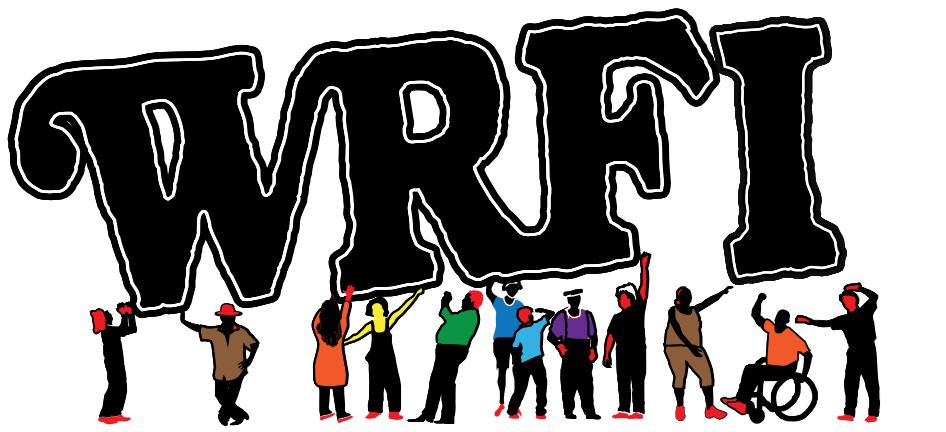New Local Currency Begins Circulation – July 17th, 2015
On July 17th, Emma Rizzo sat down with Scott Morris, founder of Ithacash to discuss Ithaca’s new local currency business. The interview originally aired on that evening’s edition of WRFI Community Radio News.
You can listen to the extended, pre-recorded interview here, including content that was not broadcast on air:
A Brief History of Local Currency in Ithaca
In 1991, Paul Glover launched Ithaca HOURS. At the time — and still to this day — one HOUR is equivalent to 10 USD, according to the currency’s website.
The value of one HOUR was set to $10, the idea being that an hour of labor was worth $10. At the time, and today, $10 for an hour of work is higher than the federal minimum wage.
21 years later, Scott Morris arrived in Ithaca with interest in the HOUR. Morris had experience studying and working with local currency, having developed several currencies in Iowa. After consulting with the board of Ithaca HOURS for about a year, he split with the organization. He then decided to launch his own local currency, which he called Ithacash.
Establishing Ithaca Dollars
According to their website, Ithacash uses a currency called Ithaca Dollars, which has a 1:1 exchange rate with the US dollar, Ithaca Dollars can be purchased using normal US currency and are used on a membership basis. Individuals, businesses and non-profits can sign up to use the currency. However, businesses, non-profits and freelancing agents pay a membership fee in order to use Ithaca Dollars in their transactions.
On the July 21st, 2014 edition of WRFI Community Radio News, Samuel Whitehead sat down with Morris to discuss the beginnings of the currency.
You can listen to the interview here:
Implementing Ithaca Dollars
Now, one year later, local businesses and individuals have signed on to use Ithaca Dollars (i$).
Ithacash has launched their text-to-pay, or TXT2PAY, which allows users to make transactions with text messages, and Morris told WRFI that the physical bills will be launching soon.
“We are really excited about revealing that,” he said. “It’s really just a matter of us being ready to receive the level of attention that we’ll get at that point. We need to have some infrastructure in place that is not quite there yet.”
A membership with Ithacash is not needed to use the physical bills.
The Ithacash team hopes that the currency will continue to circulate. He said that the currency will be kept strong with the support it gives to small and medium size enterprises.
“We are actually a benefit corporation, which is a social venture that is dedicated to generating materially positive impact in the community not just profits for a bottom line,” he said.
Sunny Days, which is located at the corner of S. Cayuga Street. and E. Green Street, was one of the first business to sign up to accept Ithaca Dollars.
Co-owner Deirdre Kurzweil said they originally made the decision to sign on to the system because the goals of Ithacash line up with the store’s goals.
“The whole mission of the store is cherishing Ithaca, and what’s great about Ithaca, and promoting Ithaca,” she said. “Being supportive of the local economy is an important part of that.”
The owners also felt connected with the mission of Ithacash as a small startup business, said Sunny Days co-owner Todd Kurzweil.
“[Ithacash’s] main mission, I believe, is to keep the money local,” he said. “I think that when we see that, and we are experiencing it at the same time, we are going to be supportive of that.”
Sunny Days also hopes to eventually use Ithaca Dollars to pay their local makers and employees.
“It’s a leap of faith but we believe in Ithaca,” Deirdre said. “And believing in Ithaca means supporting something like this.”
Ithacash as a Business
Ithacash operates as a for-profit company within the community. Morris said Ithacash makes money off of business membership fees and the markup on the production cost of the Ithaca Dollar bills. The company also receives a 2 percent transaction fee. This means that if a person receives i$100, he or she pays $2 to Ithacash.
“There is something to be said about the ability to sell money,” he said. “If you strip away all of the complexity of money system stuff and you just look at these Ithaca Dollars as units of product. There is a certain cost to produce them and the mark-up on that. That is a significant source of revenue.”
Ithacash is currently discussing potential future plans such as working with a network of non-profits in the community and creating a local jobs program to address living wage issues, Morris said. Morris expands on these ideas in the above recorded interview.
The company is also making moves to create a self-governing business in order to stabilize the currency past the current team. Morris says this sustainability will come from educating the public about the system.
“I would just love to help people understand the core of what is going on here, rather than just understanding it as some passive consumer, but actively taking an ownership role in this,” he said. “I think that’s very important because when I step away, and I hope to do that sooner than later, the community really understands what it takes to take this and run with it.”



[…] For more information on this topic, please visit our news blog. […]